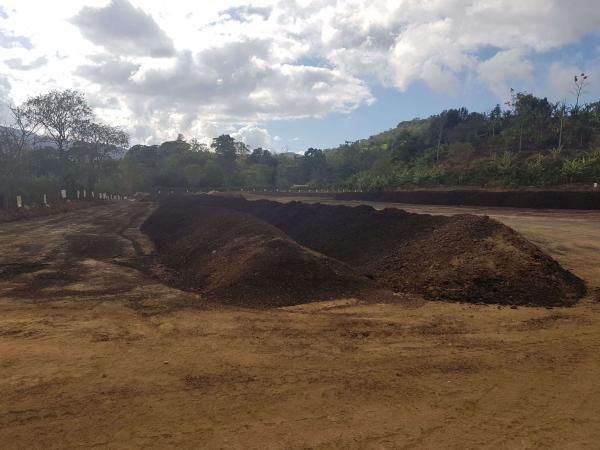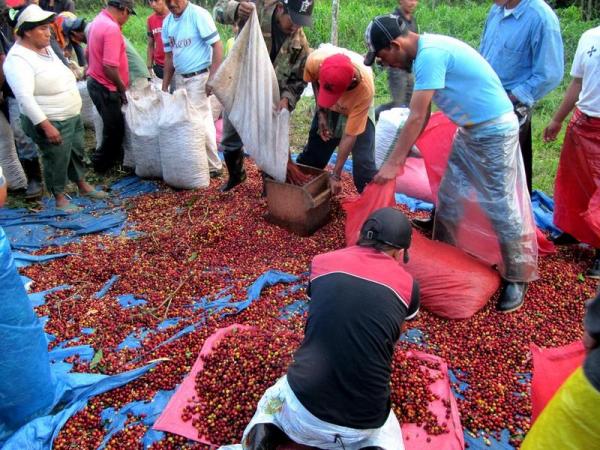- Home
- Work with us
- Cirad'Innov solutions
- Success stories
- Peste des petits ruminants diagnosis
Peste des petits ruminants diagnosis

Shepherds and their flocks of sheep in the Middle Atlas, Morocco © CIRAD, P. Dugué
Peste des petits ruminants (PPR), which is found in more than 70 countries, is a disease that affects sheep and goats, threatening more than 80% of the total numbers worldwide.
The PPR Global Eradication Programme has set a shared target of eradicating the disease by 2030. CIRAD, as an EU, Food and Agriculture Organization of the United Nations (FAO) and World Organization for Animal Health (WOAH) reference laboratory, is playing an active role in the programme. Fighting the disease helps to improve the lives of almost 300 million poor rural households whose incomes and food supply depend on livestock production.
Fruitful collaboration
To facilitate R&D and marketing, CIRAD decided to link up with Innovative Diagnostics, a French firm that develops, produces and sells zoonotic and veterinary infectious disease diagnostic tools. Starting from PPR diagnosis prototypes designed by CIRAD, Innovative Diagnostics provided its own technological innovations, to optimize diagnosis performance and offer highly effective, ready-to-use, stable reagents. Those reagents are now available and distributed worldwide, thanks to Innovative Diagnostics' distribution network.
Following these initial successes, the two organizations have continued their fruitful partnership, to which CIRAD brings its expertise in target pathogens (notably through its activities as a national and/or global reference laboratory), unique access to field samples and to a vast network of national and international animal health partners. Its laboratory infrastructures in Montpellier, Guadeloupe and Réunion (with P3 containment) allow rapid validation of tools developed in the laboratory and in the field.
Our shared aim is to develop tools that allow better diagnosis, management and control of animal diseases that have socioeconomic impacts and affect food security in tropical and Mediterranean regions.
Four PPR diagnostic kits are already on the market
As regards PPR, our collaboration has already enabled the large-scale rollout of tests, to improve knowledge of disease epidemiology. Using reagents developed by CIRAD, Innovative Diagnostics offers a comprehensive range of effective diagnostic kits:
- The ID GENE® Peste des Petits Ruminants Duplex qPCR kit, for real time virus detection. This highly sensitive test is performed either post mortem (on RNA extracted from organs or tissues) or on live animals (swabs).
- The IDScreen® PPR Antigen Capture sandwich ELISA antigen detection kit. This detects a viral protein in swabs or faeces (non-invasive samples).
- The ID RAPID® PPR Antigen test, a rapid immunochromatography dipstick test (less than 20 minutes) for use in the field, without laboratory equipment.
- The ID Screen® PPR Competition competitive ELISA kit, which detects antibodies to check vaccination or detect disease spread. This is a top tool for handling large numbers of serum samples.
Whether for PPR, Akabane and Schmallenberg viruses or Crimean-Congo haemorrhagic fever, CIRAD-IdVet tools are used to monitor herd sanitary status in relation to diseases that have an economic impact on livestock production. They also serve to monitor certain zoonotic diseases that could pose a risk for human health.
Our collaboration with CIRAD on peste des petits ruminants (PPR), which began in 2010, has since gained momentum. We are lucky enough to have a team of CIRAD researchers in Montpellier with globally recognized expertise in terms of PPR. In turn, we have applied our expertise to optimize their tools, enabling us to develop innovative, reliable, quality diagnostic tools, such as the rapid antigenic test that can be done in the field, with no need for specialist equipment.
This collaboration dovetails neatly with Innovative Diagnostics' main aim of safeguarding food value chains against a highly contagious, potentially devastating disease, which has catastrophic consequences for people who are already vulnerable because of their economic or climate conditions. Our commitment is all the more relevant these days, since in 2015, the World Organization for Animal Health (WOAH) and the Food and Agriculture Organization of the United Nations (FAO) took the joint decision to implement a global programme to eradicate PPR. We are proud to be a part of that.



























